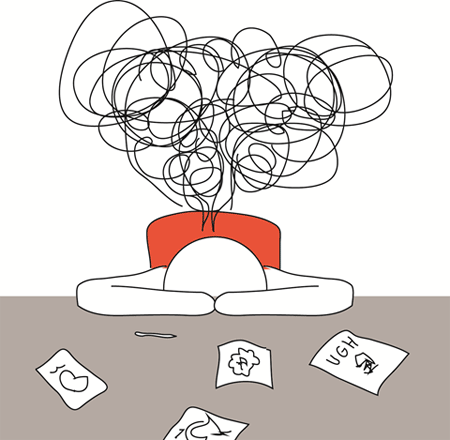 In Why Zebras Don’t Get Ulcers, I briefly summarized Dr. Robert Sapolsky’s outstanding book on the biological mechanisms inherent in the stress response. He also explains how these mechanisms go awry when stressors hang around for days, weeks, and months. Physiological disturbances include hypertension, elevated cholesterol, insulin resistance, and bone disintegration, to name a few. We may also accelerate the rate at which our DNA loses its telomeres – i.e., the segments at the ends of our chromosomes that hold the strands together.
In Why Zebras Don’t Get Ulcers, I briefly summarized Dr. Robert Sapolsky’s outstanding book on the biological mechanisms inherent in the stress response. He also explains how these mechanisms go awry when stressors hang around for days, weeks, and months. Physiological disturbances include hypertension, elevated cholesterol, insulin resistance, and bone disintegration, to name a few. We may also accelerate the rate at which our DNA loses its telomeres – i.e., the segments at the ends of our chromosomes that hold the strands together.
Many of the adverse effects of stress lie beneath our awareness. As such, they may not provide sufficient motivation for us to take action. However, the following impacts may get our attention.
We have trouble losing (or maintaining) weight. Stress increases our appetite for starchy and sweet foods to provide us with quick energy. The body assumes that we’ll have an elevated need for fuel during a relatively short interval, so it wants food that metabolizes readily into glucose. It’s not worried about having excess sugars roaming around the bloodstream.
With a long term stressor, cravings become a 24×7 phenomenon. The potato chips in the cupboard, the ice cream in the fridge, and the candy in the vending machine form a chorus that calls our names. And because these foods trigger our pleasure centers, we’re happy to respond and let them give us a little TLC. Unfortunately, the excess sugar in our bloodstream causes a number of unpleasant biochemical responses and promotes fat storage around our middles. Both factors increase our risk of cardiovascular disease while keeping the dream of fitting into our skinny jeans at bay.
We have trouble sleeping. According to Dr. Sapolsky, stress is responsible for 70% of insomnia cases. When those folks finally manage to nod off, their sleep tends to be shallower. To top it off, not getting enough sleep is another stressor!
We don’t look or feel our best when we haven’t had the required ~7-9 hours per night of sleep. We also don’t function as well. Lost sleep means our brains have less time to process memories, information, emotions, and motor tasks. Loss of deep, slow wave sleep also impacts our perceptual abilities.
We’re far more susceptible to illness. Our bodies are programmed to boost immune function in response to a short term stressor. If we’re running for our lives and sustain an injury, we want a lot of antibody warriors at the ready to quell any infection that might arise during our escape.
Unfortunately, if we have a bunch of active troops wandering around in our bloodstream for very long, they’re going to want to pick a fight. If there are no infectious agents to attack, they’ll start going after our own tissues. For this reason, the body tamps down its immune response when stressors persist. So when the usual round of germs, bacteria, viruses show up, stressed out folks won’t have the proper resources at hand to address them. They’ll get sick.
We’re more likely to have issues with substance abuse. Stress increases the addictive potential of food, alcohol, and drugs if exposure comes right before the stressor. Ongoing stress amplifies addiction and reduces one’s reservoir of willpower. It also increases the likelihood of relapse for those who’ve achieved sobriety.
For all of the foregoing reasons, we’d be wise to take stress management seriously. Here are a few strategies to consider:
- Make lifestyle adjustments to get rid of toxic stressors. Change jobs. Adjust commute patterns. Bid farewell to folks with whom there’s no hope of reasonably cordial relations. Find a more pleasant community in which to live. Ease financial pressures by living modestly.
- For circumstances in which change is not an option, re-wire your thought patterns to treat stressors as challenges that can advance your knowledge, skills, experience, and self-confidence.
- If a stressor doesn’t offer the potential for personal growth, work on training yourself not to react adversely to it. As my husband says: “Water off a duck’s back…”
- Avoid hostility, pessimism, rumination, and vengeful thoughts. Practice mindfulness and meditation to elevate your awareness of these patterns and detach from them.
- Exercise! It boosts mood and reduces stress.